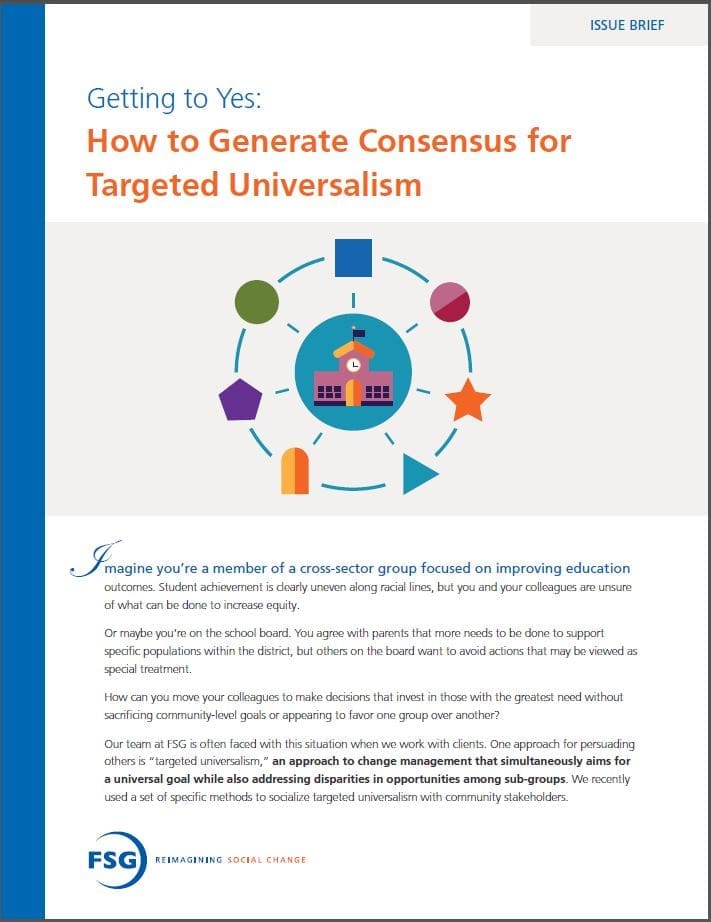Originally developed by professor and critical race scholar john a. powell, targeted universalism is an approach to change management that simultaneously aims for a universal goal while also addressing disparities in opportunities among sub-groups.
This issue brief describes how FSG used a set of specific methods to clarify the essential elements of targeted universalism with the community stakeholders of a collective impact initiative focused on education outcomes in Staten Island.
Top Takeaways
Our engagement led to several insights for generating consensus:
- Help everyone understand local disparities by disaggregating data.
- Clarify options, including an overview of how targeted universalism can be used in practice.
- Make space and time for difficult conversations, and allow representative voices from the community to discuss concerns, opportunities, and trade-offs associated with population-level outcomes.


